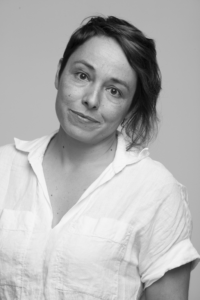2023 HDCA Conference – Sofia, Bulgaria
Home Page
The conference will take place from 11-13 September, 2023
‘Vulnerability, human development and cooperative re-building in turbulent times’
We are living in turbulent times, times characterized by dynamic, deepening inequalities both between and within societies, as well as increased levels of insecurity and vulnerability. The Covid 19 pandemic, climate change, ecological disasters, famine war in Ukraine and many other conflicts around the world, have deepened these trends. The consequences are evident in human and non-human life posing multilayered obstacles to human development. Between 2020 and 2021, the human development index contracted for all countries.
Vulnerability is a feature of humanity. Martha Nussbaum notes the need for societies to acknowledge their citizens are needy and vulnerable. If vulnerability is an enduring aspect of the human condition, it needs to be addressed by individuals, collectives and institutions. The recent Covid-19 crisis demonstrated that human vulnerability is universal. But it is also shaped and experienced differently depending on economic, political and social environments.
There are no ready, easily applied and transferable answers about how individuals and societies can cope with vulnerability amidst many emerging challenges across the world. However, there are some lessons to be learned. All crises remind us how much human lives are interrelated. In order to flourish, our societies need more cooperation at all levels – local, national and global. We need a balance between striving for individual goods and the promotion of public goods. Innovations can help, but an inclusive usage of digital technologies is necessary.
Recent manifestations of human vulnerability raise questions about how the capability approach and the human development paradigm can help, in the contemporary context, in thinking through some of the questions of changing capability sets across social divisions of race, class, gender, age, disability and nationality. Applying the capability approach can encourage studying who benefits and who loses from recent societal developments. How is development as freedom as outlined by Amartya Sen, possible under these circumstances? Are there capabilities that can promote prosperity, hope and re-imagined futures in our contemporary world?

Call for Proposals
***THE CALL FOR PROPOSALS HAS CLOSED***
Theme: ‘Vulnerability, human development and cooperative re-building in turbulent times’
While the conference call is open to all types of contributions that engage with the broader theme of human development and capabilities, the 2023 HDCA conference brings the questions describe in the conference theme to the fore. We invite papers which inform and discuss the search for answers looking at human agency, the capacity of people to overcome emerging crises, changes in well-being and moving towards flourishing societies, and sustainable development. Accounts are welcome looking at the ways in which people co-create, collaborate and thus re-build lives in a range of settings aiming to create better futures for the human and non-human worlds. Studies of cooperation among individuals, an enlargement of people’s capabilities as an essential feature of any resilient and hopeful society will provide an understanding of how to address important societal challenges. We also invite work which considers what makes cooperation sustainable, that is, stable and valuable so can contribute to our understanding of how to deal with the challenges that we face. Since cooperation is not confined to a particular social domain, its understanding requires a strong interdisciplinary perspective in which emphasis on capabilities is indispensable.
We would especially like to welcome papers that engage in research in the following four broad areas:
- how to conceptualize and measure vulnerability and human development at micro, macro level – country, regional and global – in turbulent times;
- how new challenges facing contemporary societies may enhance or restrict human development and social inequalities;
- how to encourage cooperation among differently located actors, institutions, and organizations with the aim to enrich development outcomes for all social groups, localities, nations and sub-regions;
- how to develop capabilities associated with well-being and equity that respond to the changes of work, family, knowledge production, political and social relations, the environment and non-humans.
The conference theme provides a space to examine these issues across disciplines, in research, teaching, and professional practice, and to explore policy dialogues across sectors such as the labour market, education and health. Papers are invited which explore vulnerability, human development and cooperation through different approaches – quantitative, qualitative, participatory, and mixed-method methodologies. The conference theme is intended to give space for discussion of topical areas in research on the capability approach and human development concerned also with, collective capabilities, intersectionality, empowerment and sustainability.
We invite scholars, activists, policymakers, practitioners, and students working in the area of human development and capabilities from all parts of the world to Sofia, Bulgaria. We look forward to hosting participants from a wide range of research fields, topics, methods, professions, and regions to engage in fruitful conversations with each other, and to provide space for co-creation of new theoretical and methodological advances on the capability approach and the human development paradigm which may also have political and practical implications for reducing human vulnerability and improving individual, societal and ecological well-being.
Important Deadlines
28 February 2023 – Closing date for submission of proposals (extended deadline)
15 April 2023 – Announcement of acceptance/rejection
30 April 2023 – Deadline for scholarship applications
1 May 2023 – Opening of conference registration
9 June 2023 – Deadline for conference registration at early-bird rates
07 July 2023 – Deadline for paper submission for Kuklys prize
04 August 2023 – Final deadline for conference registration at standard rates
04 August 2023 – Submission of full papers/posters/presentations
Parallel Sessions: Types of Proposals
In addition to keynote lectures and other plenaries, the conference will accommodate seven types of sessions. Except for the poster sessions, all of them can take place either in-person (during the 3 conference days) in Sofia, or online (at the end of day 2 or early day 3 of the conference):
- Academic paper sessions, for which single papers can be submitted. Each paper will be presented in a session with 2 or 3 other submissions (25 minutes per paper including Q&A). Please send an abstract of 500-1,000 words, with a list of 3-5 keywords.
- Thematic panel sessions, for which a set of presentations on a single theme related to this year’s conference theme or to the subject of one or more of the HDCA’s thematic groups is submitted. Panel proposals are welcome from the thematic group coordinators as well as from people unaffiliated with them. We particularly welcome interdisciplinary panels and panels that combine academic perspectives with those of practitioners. Each thematic panel should have a maximum of three presentations. It is also possible to propose two panels on the same theme. Each theme must have a coordinator who submits a panel abstract of up to 1,000 words, plus 3-5 keywords. In addition, an abstract of 500-1,000 words, with a list of 3-5 keywords, should accompany each presentation. The coordinator will act as the contact person for the thematic session(s) and the other panel presenters. (NB: If not all of the papers in the proposed panel session are evaluated favorably, the approved papers will be regarded as individual submissions and may be allocated to the sessions listed in point 1.)
- Author-meets-critics sessions, in which an author presents a summary of a recent book or larger piece of research. Each author should send a 500-word synopsis of the relevant book or research project, along with 3-5 keywords. The submission should also include the names of one or two confirmed discussants. Discussants can be researchers, but we particularly encourage including at least one practitioner (or organization) as proposed discussants.
- Roundtables, which are intended to engage policymakers or (non-)governmental stakeholders, or to organize discussions with practitioners about practical approaches to dealing with the problems that are the focus of the conference. Please send a 500 – 1,000 word abstract, plus 3-5 keywords. Also include information on the roundtable participants, affiliations, and whether the participation of each of them has been confirmed. Submissions can be academic-led or practitioner-led.
- Young-scholar-meets-senior-scholar sessions, intended for graduate students to present their research plan or work in progress (proposals should be 500-1,000 words, with 3-5 keywords). Senior scholars, including HDCA Fellows, will provide feedback and chair the discussion.
- Documentaries. If you would like to present and discuss your film or documentary during this conference, please send in a proposal with background and motivation (500-1000 words).
- (not available online:) Poster exhibition, for which dedicated time slots will be available in the program so that authors can communicate their ideas to the circulating audience. Posters could present a research project, some completed fieldwork, a case study, or an early-stage research proposal. Please send an abstract of 300-600 words, with a list of 3-5 keywords.
Please note:
• You will be required to identify the broad theme for your proposal to enable us to allocate it to reviewers (for example, education or health).
• Since we expect a large number of submissions, each person is allowed to be involved in a maximum of two proposals and these must be for different types of sessions (e.g. full paper and thematic panel)
• The same proposal may not be submitted more than once to different kinds of sessions, for example, full paper, poster, and young scholar.
• For panel proposals, the panel organizers may not substitute a non-reviewed paper if a presenter withdraws.
The main criteria for evaluating the various kinds of submissions are:
• Novelty/originality
• Clarity and structure
• Significance/impact/relevance to/engagement with the capability approach and/or human development
• Methodology/methods or practical application
• Fit with the conference theme
While the proposals may come from any discipline and may be theoretical, applied, or policy-based, every submission must engage with, apply, extend, criticize, or offer insights specifically relevant to the capability approach and/or the human development paradigm.
Conference Format and Timeline
We plan the conference in a hybrid format. We invite people to come to Sofia and participate in person in the Conference but will also provide for HDCA members who are unable to attend with panels for online presentations.
All keynote events will be livestreamed. One will be open for the public (Martha Nussbaum). A variety of in-person parallel sessions will be organized during days 1, 2 and 3, in-between the different plenary sessions; parallel sessions of day 2 late afternoon and day 3 early morning will be completely in online modus.
| Open Access | Participation through online platform | On-campus participation | |
| Public event (Martha Nussbaum keynote) | 1 | 1 | 1 |
| Public event (TSA, OSIS & World Bank) | 1 | 1 | |
| Public event (book launch of the Martha Nussbaum’s new book) | 1 | ||
| Plenary sessions | 6 | 6 | |
| Parallel sessions | 12 Sept pm
13 Sept am |
11-13 Sept | |
| Poster exhibition | Yes | ||
| Documentaries | |||
| Meeting facilities | 12 Sept pm
13 Sept am |
11-13 Sept | |
| Conference dinner | Yes | ||
| HDCA Membership and Journal Subscription | Yes | Yes |
Keynote Speakers
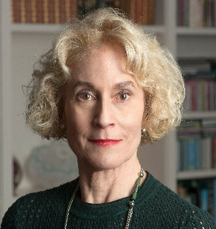
Martha C. Nussbaum
Law and Philosophy
University of Chicago, United States
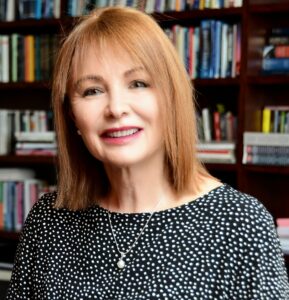
Melanie Walker
Higher Education & Human Development
University of the Free State, South Africa
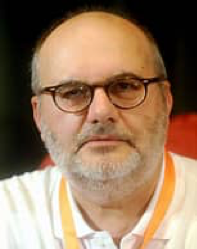
Branko Milanović,
City University of New York, United States
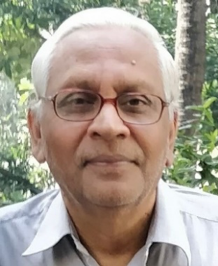
Subbu Subramanian
Independent Scholar; formerly Professor at Madras Institute of Development Studies
Chennai, India
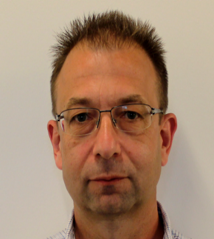
Vassil Kirov
Institute of Philosophy and Sociology BAS, Bulgaria
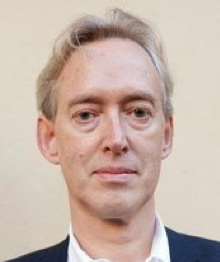
Gustaf Arrhenius
Institute for Futures Studies, Sweden
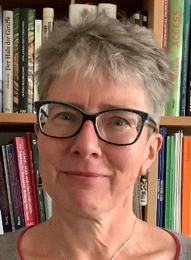
Ursula Holtgrewe
Centre for Social Innovation, Austria
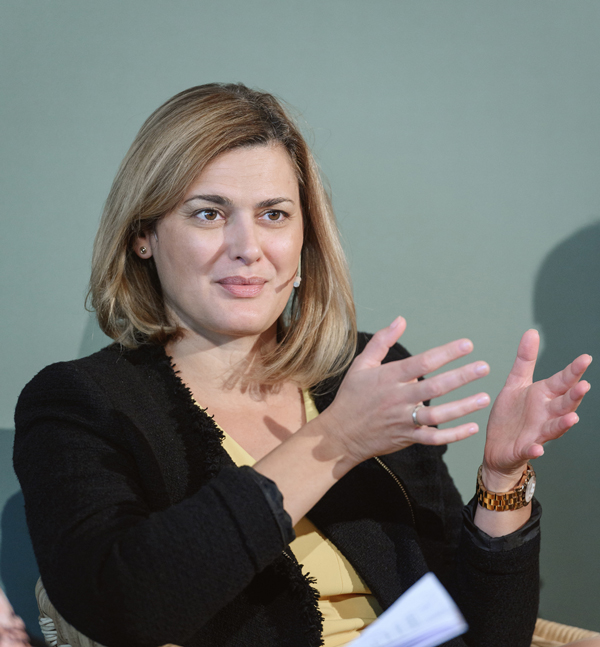
Karina Angelieva
Head of the Political Cabinet
Ministry of Energy, Bulgaria

Zaakhir Asmal
Development Policy Research Unit
University of Cape Town, South Africa
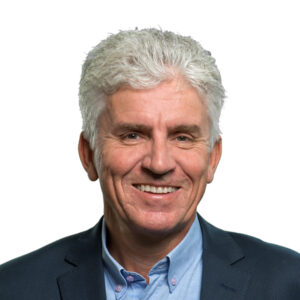
Steven Dhondt
Researcher at TNO and visiting professor at KU Leuven
Belgium
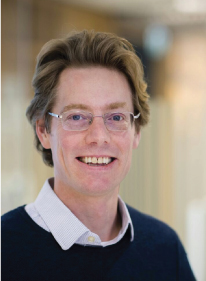
Joost de Laat
Professor of Economics and Director
Utrecht University Centre for Global Challenges, the Netherlands
Eugenia Volen
Program Director, Early Learning and Care
Trust for Social Achievement, Bulgaria
Conference Program
To download the GENERAL CONFERENCE PROGRAMME, please click here.
To download the FULL CONFERENCE PROGRAMME (incl. abstracts), please click here.
To download the FLOOR MAP, please click here.
The programme is also seen below. The search works only for a particular day.
The 2023 HDCA Conference Sofia will use an online platform called Whova. You can download the Whova app to access the program and other information about the event
You can also view the program below.
Loading…
Registration, Fees and Scholarships
REGISTRATION IS CLOSED
Please see the fee schedule below for in-person and online participants. (Please note that in-person attendees will have full access to all livestreams as well.) Applicants from low and middle-income countries are eligible for reduced registration fees, as per this schedule:
| In-person | Online | |
| Resident in High Income Country | ||
| Early bird | $360 | $170 |
| Standard | $400 | $230 |
| Concessions° + students early bird | $180 | $80 |
| Concessions° + students standard | $230 | $110 |
| Resident in Low- or Middle-Income Country | ||
| Early bird | $130 | $80 |
| Standard | $180 | $110 |
| Concessions° + students early bird | $80 | $50 |
| Concessions° + students standard | $150 | $80 |
°NGO worker or similar or unwaged
The conference registration fee includes a one-year HDCA membership, including a year’s subscription to the Journal of Human Development & Capabilities.
SCHOLARSHIPS
Link to application form
HDCA conference scholarships, which cover part of the cost of attending the 2023 conference, will be awarded based on merit and need to either: a) early career scholars presenting single-authored papers at the 2023 HDCA Conference or b) scholars residing in low- and mid-income countries presenting papers at the 2023 HDCA Conference (for jointly authored papers to qualify for scholarship funds, all authors must reside in a low- or middle-income country). Scholarships are not awarded for poster presentations. As we are unable to assess need directly we request that you only apply for a scholarship if you can only attend the conference if awarded a scholarship
In addition, the HDCA in association with the Human Development Report Office (HDRO) will award three prestigious (and highly competitive) Ul Haq Early Career Scholarships to attend the HDCA 2023 conference (see details below). Each award will provide up to $2500 to cover travel, visas, accommodation, and registration fees for the conference in Sofia, Bulgaria, 11-13 September.
Applicants can be considered for both types of scholarships but only one scholarship can be awarded per person. Please fill out the application form here. The deadline for scholarship applications is: 30 April 2023.
Ul Haq Early Career Scholarships – Details
The HDCA in association with the Human Development Report Office (HDRO) is pleased to invite applications for three prestigious Ul Haq Early Career Scholarships to attend the HDCA 2023 annual conference, in person.
Mahbub ul Haq was an economist, international development theorist, and politician who served two periods as the Minister of Finance of Pakistan Mahbub ul Haq was the pioneer in developing the concept of human development, and led the establishment of the United Nations Development Programme’s Human Development Report and the Human Development Index, pivotal in placing people at the heart of global development policy debate. He not only articulated the human development philosophy for development planning, but he also provided a now widely used statistical measure to quantify indicators of human development.
Each award will provide up to $2500 to cover travel, visas, accommodation and registration fees for the conference in Sofia, Bulgaria, 11-13 September
Eligibility Criteria:
1) Applicants should be enrolled in a PhD programme in any discipline, or early career researchers who are within 5 years of finishing their PhD.
2) They must have had a proposal accepted for the conference with a minimum grade of 78.
3) Priority will be given to scholars studying and working in low- and middle-income countries but high-income country applicants will also be considered.
4) Disciplinary diversity will inform the selection.
5) Financial need for conference support.
In the year following the conference, successful applicants will be expected to:
- Join a Thematic Group and Regional Network and to be active members.
- To present at least one joint HDRO- HDCA webinar.
- To develop their conference paper into an article for submission to the JHDC. Each successful applicant will be assigned a mentor to assist them with this process, including reading and commenting on their draft article.
Pre-conference Day
Pre-conference events will be held on September 10. All registered conference participants are invited to attend. Please note events that require pre-registration.
_______________________________________________
Sofia city tour (10:00 – 12:00)
A sightseeing walk and a perfect presentation of Sofia’s history and landmarks.
Visit to the National History Museum (10:30 – 13:00)
The National History Museum is the largest museum in Bulgaria. It contains over 650,000 objects connected to archaeology, fine arts, history and ethnography, from ancient times to the present day. The museum is situated in one of the main buildings of the official residence of the President, Vice President and Government of the Republic of Bulgaria.
Website: https://historymuseum.org/
Visit to the Vitosha Mountain (9:00 – 14:00) (if the weather conditions do not allow this visit, participants may take part in one of the other 2 events).
A short trip to Vitosha Mountain (2290 m) can be a great way to experience part of the natural beauty of Bulgaria and get some fresh air. It is one of the symbols of Sofia and is a favourite hiking place for the citizens and guests of the city. The tour will show some of its major landmarks. Vitosha is the oldest nature park in the Balkans.
Policy Panel “The next generation of human security”
(16:00-17:15)
The key questions addressed by the Policy Forum are as follows:
- What fundamental threats to people are emerging today? What are their characteristics? How can they be monitored and tackled by public policies?
- What is behind the new generation of threats? What are the blind spots in current approaches on development policy and human security?
- How can the capabilities approach contribute to the new generation of policies to tackle new threats to human security? How can these policies be integrated into development and security actions?
This Policy Forum of the Journal of Human Development and Capabilities highlights the state-of-the-art discussion on these points, opening the space for a new generation of research on policy issues and recommendations rooted in the capabilities approach. The Policy Forum addresses some of the most important challenges to sustainable human development today and contribute to new thinking and policy approaches necessary to further sustainable human development amidst a new generation of threats.
Papers:
Human Security in the Anthropocene: A New Base for Action
Mario Biggeri, University of Firenze & Heriberto Tapia, UNDP
Solidarity and Human Insecurity: Interpreting and Extending the HDRO’s 2022 Special Report on Human Security
Des Gasper, Erasmus University Rotterdam & Oscar A. Gómez, College of Asia Pacific Studies, Ritsumeikan Asia Pacific University
“Freedom from Want”: A Critical Reflection in the Face of the Anthropocene
Kehinde Balogun, UNU-EHS, Kariuki Weru, UNU-EHS & Xiaomeng Shen, UNU-EHS
Humane Security: Solidarity in Policy and Practice
Su-ming Khoo, National University of Ireland
Universalism in Healthcare for Human Security: Policy Considerations
Tobias Schillings, Oxford Department of International Development, Diego Sánchez-Ancochea, Oxford Department of International Development & Rehana Mohammed, Human Development Report Office of the UNDP
Please pre-register when completing the conference registration form.
Book Launch and Roundtable on Justice for Animals
(17:30-18:30) 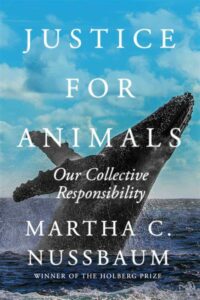
This event will start with a book launch of the book Justice for Animals, presented by Martha C. Nussbaum, Law and Philosophy, University of Chicago.
This will be followed by a roundtable by scholars who are working with Martha C. Nussbaum on the animal capabilities project which is part of the Balzan Prize that she has been recently awarded.
Roundtable speakers:
Amy Linch, Pennsylvania State University, Breena Holland, Lehigh University, Jeremy Bendik-Keymer, Case Western Reserve University & Nicolas Delon, New College of Florida
Please pre-register when completing the pre-registration form
Summer School
HDCA Summer School 2023
Friday 8 and Saturday 9 September 2023
Sofia, Bulgaria.
REGISTRATION IS CLOSED
Summer School Programme
We are excited to announce that this year HDCA Summer School will take place in person on Friday 8 and Saturday 9 September 2023 ahead of the conference in Sofia, Bulgaria.
The summer school aims to develop participants’ knowledge and understanding of key concepts in human development, with a particular focus on the capability approach. Giulia Greco (Giulia.Greco@lshtm.ac.uk) and Oliver Mutanga (oliverm.junior@gmail.com) will lead the summer school, joined by special guest tutors.
The two-day programme will include sessions delivered by senior capability scholars and practitioners covering foundational concepts in human development and the capability approach, measurement issues, inequalities, and sustainability. Participants will also have the opportunity to discuss their research projects and receive feedback in a workshop-style. All sessions will be in person and in English.
Summer School Eligibility
The programme is specifically designed for doctoral students and post-doctoral scholars who already have some understanding of development issues and are currently working with the capability approach. To be eligible for the 2023 HDCA summer school you must be a current doctoral student or postdoctoral researcher (within 2 years of receiving your doctorate) working with the capability approach. You must also attend the main HDCA conference in Sofia (separate registration and payment required).
Priority will be given to students who have not previously attended an HDCA summer school. Applications from students who have previously attended an HDCA summer school will be considered on a case-by-case basis.
If you have any queries about your suitability for the summer school, please email the Education Officers, Giulia Greco and Oliver Mutanga for clarification.
Registration
Registration has been extended through August 11. If spaces are filled prior to August 11, a waiting list will be opened. https://hd-ca.org/2023-hdca-summer-school
The registration fee for the summer school is USD 80. It will include participation in the two-day programme, refreshments, two lunches, one evening meal, and course materials. It will not include travel or accommodation costs, so participants will need to budget accordingly. A wide range of accommodation is available locally.
If you are awarded a scholarship for this year’s main HDCA conference, you will be eligible to apply for up to USD 100 towards your accommodation costs for attending the summer school (payable following summer school registration).
Further details regarding the summer school registration process and practical information for the event (transport, venue, etc.) will be provided when the main conference registration opens in May.
Please note summer school places are limited and usually fill up very quickly.
Giulia Greco, HDCA Education Officer
Oliver Mutanga, HDCA Education Officer
Conference Committees
Programme Committee
Melanie Walker, Higher Education & Human Development, University of the Free State, South Africa
Elaine Unterhalter, Centre for Education & International Development, UCL, United Kingdom
Martin van Hees, VU Amsterdam/Amsterdam University College, the Netherlands
Shailaja Fennell, Centre of South Asian Studies, University of Cambridge, United Kingdom
Pepka Boyadjieva, Institute of Philosophy and Sociology at BAS, Bulgaria
Petia Kabakchieva, Sofia University, Bulgaria
Vassil Kirov, Institute of Philosophy and Sociology at BAS, Bulgaria
Melis Cin, Lancaster University, United Kingdom
Petya Ilieva-Trichkova, Institute of Philosophy and Sociology at BAS, Bulgaria (Conference Chair)
Organising Committee
Emilia Chengelova, Institute of Philosophy and Sociology at BAS, Bulgaria
Petya Ilieva-Trichkova, Institute of Philosophy and Sociology at BAS, Bulgaria
Sonya Karabelyova, Sofia University, Bulgaria
Boyan Znepolsky, Sofia University, Bulgaria
Petia Kabakchieva, Sofia University, Bulgaria
Georgi Stoytchev, Open Society Institute Sofia, Bulgaria
Marin Lessenski, Open Society Institute Sofia, Bulgaria
Dessislava Velkova, Open Society Institute Sofia, Bulgaria
Bagryan Malamin, Open Society Institute Sofia, Bulgaria
Doriana Basamakova, Trust for Social Achievement, Bulgaria
Martin van Hees, VU Amsterdam/Amsterdam University College, the Netherlands
Pepka Boyadjieva, Institute of Philosophy and Sociology at BAS, Bulgaria (Chair)
Venue, Travel, Accommodation and Visa, Currency Exchange
The Conference Venue
The main building (The Rectorate) of Sofia University St. Kliment Ohridski
15 Tsar Osvoboditel Blvd, 1504 Sofia Centre, Sofia
The halls that will accommodate the conference are comfortable and cosy – study halls of several humanities faculties located in the central building imbued with the traditional academic spirit. The opening of the conference and hybrid events will be in the University’s formal Aula.
Enter the building through the main entrance.
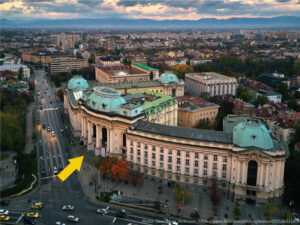
View in Google Maps: https://goo.gl/maps/w6zXMS4z7U7nV57w8
Pre-Conference Day Venue
The main building of the Bulgarian Academy of Sciences.

1 “15 Noemvri” Str., 1040 Sofia, BULGARIA (or Narodno Sabranie Square)
Enter the building through the main entrance.
View in Google Maps: https://goo.gl/maps/YutaxCWE9MeaotbbA
Click here to download the information as a PDF
Hotel Suggestions
We have negotiated special conference prices with hotels within 3 to 20 minutes away from the Conference venue. Most of them are located in the city centre, on walking distance. Seven economy hotels are also included in the suggestions list.
Premium Hotels
Sense Hotel
4 minutes walk to Sofia University
Website: https://www.sensehotel.com
View in Google Maps: https://goo.gl/maps/YVeQpqFdQ7v3e4Dc9
How to book
- Please book by following this link: HDCA 2023 Accommodation
- Prices shown include promotional rates. The reservations should be made prior July 30.
- Cancellation and modification are free of charge are possible until 2 pm local hotel time 5 days prior to arrival.
How to get there from the airport: https://goo.gl/maps/mTGWA3z9gYViJt1n9
Hotel Intercontinental Sofia
3 minutes walk to Sofia University
Website: https://www.ihg.com/intercontinental/hotels/us/en/sofia/sofco/hoteldetail
View in Google Maps: https://goo.gl/maps/Wm2CxNJ3cr5zGxcQ7
How to book
Please book via the link: 2023 HDCA Conference – Sofia, Bulgaria
Hotel Conditions:
- Rates are valid for reservations made up to 31 August.
- Cancellation free of charge is possible up to 7 days before arrival.
- In case of late cancellation or non-appearance – 100% of the amount is due.
- A guarantee credit card will be required when booking and the card will be charged in case of a no-show or late cancellation.
How to get there from the airport: https://goo.gl/maps/6roM8b5TLawG1N2A8
Grand Hotel Sofia
13 minutes walk to Sofia University
Website: https://www.grandhotelsofia.bg
View in Google Maps: https://goo.gl/maps/WedwWT6DQmG3SoAYA
How to book
To benefit from the promotional price one should send an email to reservations@grandhotelsofia.bg, and include HDCA 2023 as reservation keyword. Grand Hotel Sofia Reservations tel.: +359 2 811 0 800
Hotel Conditions
- Promotional rates are valid for reservations made before July 20.
- Cancellation free of charge is possible up to 14 days before arrival.
- In case of late cancellation or non-appearance – 100% of the amount is due.
- A guarantee credit card will be required when booking and the card will be charged in case of no-show or late cancellation.
How to get there from the airport: https://goo.gl/maps/8kugn7Hx4oKG5QJn7
Sofia Balkan Palace
16 minutes walk or 2 minutes one stop metro ride from Serdika station to Sofia University
Website: https://www.sofiabalkanpalace.com
View in Google Maps: https://goo.gl/maps/gfnUkPHVH1EozqHB6
How to book
Hotel Conditions
- Promotional rates are valid for reservations made before July 24.
- One night’s room revenue will be charged for each room cancelled after 01st of August 2023.
- Guestroom Cancellation between 7 to 0 days prior to arrival, no-show or early departure: All cancelled guestrooms will be charged at full amount for the full duration of the agreed stay.
How to get there from the airport: https://goo.gl/maps/2vtgDaYYQMFemiwJ8
Hyatt Regency Sofia
4 minutes walk to Sofia University
Website: https://www.hyatt.com/en-US/hotel/bulgaria/hyatt-regency-sofia/sofrs
View in Google Maps: https://goo.gl/maps/STsjQF5rVpHzdBTj6
How to book: Information will be added shortly due to expected hotel confirmation.
How to get there from the airport: https://goo.gl/maps/rwsCDLxHLfchj7eBA
Hotel Crystal Palace
3 minutes walk to Sofia University
Website: https://www.crystalpalace-sofia.com
How to book: Please use hdca2023 promo code when booking here: https://www.crystalpalace-sofia.com
The code will be valid until August 10.
The discount is available for the period September 10 – 13, 2023
Hotel Conditions
Promotional rates are valid for reservations made before August 10.
Free cancellation is possible up to 10 days before the arrival.
How to get there from the airport: https://goo.gl/maps/xAH9zn8KCeZSoohK8
Economical Budget Hotel Suggestions
Park Hotel Moskva
~15 minutes, two stops metro ride from F. J. Curie station to Sofia University or 35 minutes walk through the park or
Great view from the upper floors. Close to a park.
Website: https://www.parkhotelmoskva.net
View in Google Maps: https://goo.gl/maps/fhVLQiTi1Qsbm7Pb9
How to book
- To benefit from the promotional price one should send an email to marketing@parkhotelmoskva.net, and include HDCA 2023 as reservation keyword.
- The cost of a single room is 43 Euro, Double – 61 Euro.
- Reservation of the rooms is made only after written confirmation from the client by e-mail.
How to get there from the airport: https://goo.gl/maps/VqX8yGvTtLZKXcFc9
EuroStars Sofia City
10 minutes walk to Sofia University
Website: www.eurostarshotels.com
View in Google Maps: https://goo.gl/maps/Dej9dWV7htrRhqhv5
How to book
- The hotel is part of the Spanish Hotuza Group and do not operate with fixed prices.
- The capacity is 61 rooms and therefore the hotel accommodates groups of up to 15 rooms per day.
- Offers are individual, for specific request.
- Please specify period, number and type of rooms and you will receive an offer as soon as possible.
For the best rate, you can book through the hotel’s official website – www.eurostarshotels.com. The price includes free breakfast and free water upon check-in.
How to get there from the airport: https://goo.gl/maps/4FVBVqGfprYE1ptY8
Arte Hotel
15 minutes walk to Sofia University
Website: https://artehotelbg.com
View in Google maps: https://goo.gl/maps/ayUUMfWYNMarKu8z7
How to book: Via hotel’s website: https://www.reservations.artehotelbg.com/?lng=en-GB¤cy=EUR or email to reservations@artehotelbg.com.
How to get there from the airport: https://goo.gl/maps/UiMEoap9w54idpbQ8
Hotel Latinka
15 minutes, two stops metro ride from F. J. Curie station to Sofia University or 30 minutes walk through the park or
View in Google Maps: https://goo.gl/maps/yJ1wFqGJ1pYPF6edA
How to book: The hotel’s presentation on Booking.com
How to get there from the airport: https://goo.gl/maps/L5jV9CN6w6XyLcGs5
Hotel Kibella
20 minutes by bus 280 from Hotel Pliska to Sofia University
View in Google Maps: https://goo.gl/maps/EQRxxpyMusY1oKWK6
How to book: The hotel’s presentation on Booking.com
How to get there from the airport: https://goo.gl/maps/NjzHoSVCmpfRgVst5
Hotel of the Bulgarian Academy of Sciences
28 minutes by bus 280 from Hotel Pliska Bus stop to Sofia University
View in Google Maps: https://goo.gl/maps/ZmoT8DZoV3xTYxqF6
How to book: The hotel’s presentation on Booking.com
How to get there from the airport: https://goo.gl/maps/bHGuw7YxiY7kjwvm8
Hotel Europe
20 minutes by bus 280 from Hotel Pliska to Sofia University
View in Google Maps: https://goo.gl/maps/Eb1wxChRSd985YZY8
How to book: The hotel’s presentation on Booking.com
How to get there from the airport: https://goo.gl/maps/FL15STkmmxzverof9
Hotel Downtown
14 minutes walk to Sofia University
View in Google Maps: https://goo.gl/maps/dcgME29NMU2L5tYj6
How to book: The hotel’s presentation on Booking.com
How to get there from the airport: https://goo.gl/maps/vp53NzL3KrSTQWNg9
Rosslyn Thracia Hotel Sofia
20 minutes walk to Sofia University
View in Google Maps: https://goo.gl/maps/9UCtwnc1iBh5aepH9
How to book: The hotel’s presentation on Booking.com
How to get there from the airport: https://goo.gl/maps/QR7dFjbpbAiezdLt6
Hotel COOP
12 minutes walk to Sofia University
View in Google Maps: https://goo.gl/maps/iGcN6iwB3bdL4Q5N9
How to book: The hotel’s presentation on Booking.com
How to get there from the airport: https://goo.gl/maps/wUgmq5xYZ2AVTbnY7
How to Get To the Conference Venue
By Metro
The metro station at Sofia Airport is located in Terminal 2 (regular companies and Ryanair). You can reach it by following the floor markings in the public area of Terminal 2. The station is located on your left when you exit the terminal.
View in Google Maps: https://goo.gl/maps/wCejLThRePtefw2Q6
If you arrive on Terminal 1 Sofia Airport provides free-of-charge transportation to Terminal 2 every 30 minutes. The shuttle bus stops are located in front of the terminal buildings, and are designated by signage and pavement markings. The inter-terminal transfer service operates 24/7.
The first metro from the Airport to the city center is at 5:26am on working days, and at 5:27am on holidays. The last one is at 22:43 on working days and at 23:04 on holidays.
You should leave the metro on the 11th station – SU Sveti Kliment Ohridski. From there it is a 2 – minute walk to Sofia University (100 m), the metro station is named on the university.
Tickets can be bought at ticket machines at the entrances of the metro stations or at cashier’s desk of Metropolitan EAD. The ticket should be validated at the barriers at the entrance to the metro stations. It is valid to travel in the metro within 30 minutes from the issue hour. One way ticket price is BGN 1.60 (0.8 Euro) The ticket machines accept Bulgarian banknotes and coins. The validators at the barriers also accepts credit/debit cards, convenient if you do not have any cash or change.
Passengers with regular transport documents are allowed to take up to 2 pieces of hand luggage on public transport vehicles free of charge. Any additional pieces of luggage are charged with a separate transport document.
More information on the types of luggage, transport conditions, routes and timetables can be found at: Sofia Urban Mobility Centre and Metropolitan Sofia.
SHORT-TERM TRANSPORTATION DOCUMENTS IN SOFIA
Ticket 30 Plus (ticket allowing a trip with transfers within the first 30 minutes) – price BGN 1.60 (0.8 Euro) (can be loaded into an electronic card (Sofia City Card or Ultraligh) or to be paid with a bank card at a validator in a vehicle or at metro entry barriers. Allows combined trip by ground vehicle and metro. The 30 minutes start from the first successful validation. Within these 30 minutes, a passenger may use more than two vehicles, but ticket MUST be validated in each one! The last validation performed within 30 minutes allows the passenger to complete their validated trip without time limit, until the end of the route.
Ticket 60 Plus (ticket allowing a trip with transfers within the first 60 minutes) – price BGN 2.20 (1.1 Euro) (can be loaded into an electronic card (Sofia City Card or Ultraligh). Allows combined trips with ground vehicle and metro. The 60 minutes start from the first successful validation. Within this 60 min, a passenger may use more than two vehicles, but ticker MUST be validated in each one! The last validation performed within 60 minutes allows the passenger to complete their validated trip without time limit, until the end of the route.
One-day/day card – price BGN 4 (2 Euro) (can be loaded into Sofia City Card or Ultraligh) and can be combined with a 30 plus or 60 plus ticket.
24 hour card, incl. night transport – price BGN 6 (3 Euro) (can be charged to Sofia City Card or Ultraligh and can be combined with a 30 plus or 60 plus ticket). The validity of the card starts from the corresponding time and day of purchase.
72 hour card, incl. night transport – price BGN 15 (7.5 Euro) (can be charged to Sofia City Card or Ultraligh and can be combined with a 30 plus or 60 plus ticket). The validity of the card starts from the corresponding time and day of purchase.
Getting to the Conference Venue by Bus
In case you arrive at Terminal 1 (low-cost companies except Ryanair) you can also take 84 bus route which connects the city centre with Sofia Airport Terminal 2 and Terminal 1. You should buy your ticket from the BUS driver (2.0 BGN, 1 Euro). If you purchase a ticket from the driver it is always 2 BGN, if from a machine or self-check it is 1.6 BGN. Alternatively, use a debit/credit card on the self-check machines inside the busses.
By Taxi
For your comfort and safety, we recommend the services of the taxi operator Yellow! as contractual partner of SOF Connect, the concessioner of Sofia Airport.
You can request the service at the offices of Yellow! in the Arrivals of Terminal 1 and Terminal 2.
Phone: +359 2 91 119, website: www.yellow333.com and the floor markings in yellow will lead you to the taxi stand area..
A taxi from the airport to the hotels/conference venue costs approximately 15 – 20 €.
WARNING! We recommend that you do not use taxi services offered outside the office of the taxi operator or in front of the terminal to avoid the risk of abuse.
Information on Sofia Airport site: Transport to/from the Airport
General Information About Bulgaria and Sofia
- Sofia is the capital
- The official language is Bulgarian
- The official script is Cyrillic
- The official religion is East Orthodox Christianity
- Currency: BGN – pronounced “lev” (plural leva); Exchange rates €1 = BGN 1.96
- Calling code: 00359
- Time zone: EET (UTC+2)
- Traffic is on the right side
- Power plugs – see more at: https://world-power-plugs.com/bulgaria
- Weather in Sofia in September: https://www.weather-atlas.com/en/bulgaria/sofia-weather-september
The first month of the autumn, September, is still a pleasant month in Sofia, Bulgaria, with average temperature fluctuating between 11°C (51.8°F) and 23°C (73.2°F). - Info for various cultural events and museums in Sofia you will find here: https://www.visitsofia.bg/en/
- Welcome to Sofia: https://youtu.be/d3_q3ozJQZ0
- Best Places to Visit in Sofia Bulgaria https://www.youtube.com/watch?v=7SRHzGfH4as
- Top 25 Things to Do and See in Sofia: https://youtu.be/gljZJnP5ZWs
- Various videos about Sofia: https://www.youtube.com/results?search_query=sofia+guide
- Sofia free walking tours in English: https://freesofiatour.com
List of Countries Whose Citizens, Holders of Ordinary Passports, Require Visas to Enter Bulgaria
Afghanistan, Algeria, Angola, Armenia, Azerbaijan, Bahrain, Bangladesh, Belarus, Belize, Benin, Bhutan, Bolivia, Botswana, Burkina Faso, Burundi, Cambodia, Cameroon, Cape Verde, Central African Republic, Chad, China, Peoples Republic of (PRC), Comoros, Congo, Democratic Republic of the, Congo-Brazzaville, Cote d’Ivoire, Cube, Democratic Republic of Korea, Djibouti, Dominican Republic, Ecuador, Egypt, Equatorial Guinea, Eritrea, Ethiopia, Fiji, Gabon, Gambia, Ghana, Guinea, Guinea-Bissau, Guyana, Haiti, India, Indonesia, Iran, Iraq, Jamaica, Jordan, Kazakhstan, Kenya, Kosovo, Kuwait, Kyrgyzstan, Laos, Lebanon, Lesotho, Liberia, Libya, Madagascar, Malawi, Maldives, Mali, Mauritania, Mongolia, Morocco, Mozambique, Myanmar, Namibia, Nauru, Republic of, Nepal, Niger, Nigeria, Oman, Pakistan, Palestinian Authority, Papua New Guinea, Philippines, Qatar, Russia, Rwanda, Sao Tome and Principe, Saudi Arabia, Senegal, Serbia*, Sierra Leone, Somalia, South Africa, Sri Lanka, Sudan, Surinam, Swaziland, Syria, Tajikistan, Tanzania, Thailand, Togo, Tunisia, Turkey**, Turkmenistan, Uganda, Ukraine***, Uzbekistan, Vietnam, Yemen, Zambia, Zimbabwe.
Citizens of the EU, EEC (Norway, Iceland and Lichtenstein) and Switzerland are exempted from the requirement to have a long-term visa and from the requirement to have “work permit” when staying in Bulgaria for the period of more than 90 days.
* Serbia: Only holders of biometric passports are exempt from the visa obligation. Holders of non-biometric passports and holders of passports issued by the Serbian Coordination Directorate (in Serbian: Koordinaciona uprava) still require a visa in which case the visa facilitation agreements apply.
** Turkey: Citizens of the Republic of Turkey holding valid regular passports and visas issued by the Member States of the Convention implementing the Schengen Agreement or of the European Union, or residence permits issued by the Member States of the Convention implementing the Schengen Agreement or of the European Union, Switzerland or Liechtenstein, may enter the territory of the Republic of Bulgaria and transit there through without visas for up to 5 (five) days, where their transit is from the Republic of Turkey to the state which issued the visa or residence permit, as well as in case of transit from such state to the Republic of Turkey. Nationals of Turkey, holders of special passports are not visa exempt.
*** Ukraine: only holders of biometric passports are exempt from the visa obligation. Holders of non-biometric passports still require a visa in which case the visa facilitation agreements apply.
Last updated by MFA: 05.01.2021. Click here for more info about Bulgarian visa.
Currency Exchange in Sofia
Exchanging your currency to Bulgarian Levs is possible in every bank office. When you arrive at Sofia Airport you can change a small amount at the airport exchange desk, just enough to take a taxi and get to the hotel. On the next day walk by a bank office to do the main money exchange. You can also withdraw money from the airport ATM.
The nearest bank offices to Sofia University are:
Fibank – 3 minutes by feet: https://goo.gl/maps/z36wgHB45sA2VZMf8
Unicredit Bulbank: https://goo.gl/maps/Wb3N3vPvwYnvFvM2A
There are a large number of ATMs are available around the conference venue: https://www.google.com/maps/search/ATMs/@42.6930413,23.3356343,17z/data=!4m7!2m6!3m5!2sSofia+University+St.+Kliment+Ohridski!3s0x40aa85742b65a213:0x88e9e4cfcaa2e5b6!4m2!1d23.334946!2d42.6935966?entry=ttu
Click here to download the above accommodation and visa information as a PDF
Welcome to Sofia!
The 2023 conference will be held at Sofia University, main building.
Sofia is the capital of Bulgaria since 1879 and the largest city in the country. The city is one of the oldest in Europe being inhabited for 7000 years. Sofia is at the foot of Vitosha Mountain (2290 m) – a favourite hiking place for the citizens and guests.
Sofia is both old and modern with a relatively small centre. Most of the significant buildings – (Parliament, Presidency, City Hall, University, National Theatre, National Gallery) are within walking distance.
Sofia is a green city, with trees lining the streets and several parks in the centre. The city has viable public transport, with the metro being the most convenient transport from the airport to the centre. Taxis are available and there is a wide choice of restaurants, bars, and clubs in the broad centre.
In September the weather is mild, with a little chance of rain and the average maximum temperature is around 23 degrees Celsius.
The conference is hosted by Sofia University – the oldest higher education institution in Bulgaria. The rectorate building is an architectural landmark with 36 000 sq. m. of floor space, 324 rooms, including 65 auditoriums with 6000 seats in the ideal centre of the city.
The halls that will accommodate the participants are comfortable and cosy – study halls of several humanities faculties located in the central building imbued with the traditional academic spirit. The opening of the conference and hybrid events will be in the University’s formal Aula, with side events in beautiful buildings nearby.
Sofia University employs some of the best Bulgarian scientists in all the research fields. Scientific activity of the University’s lecturers is a mandatory integral part of the educational process.
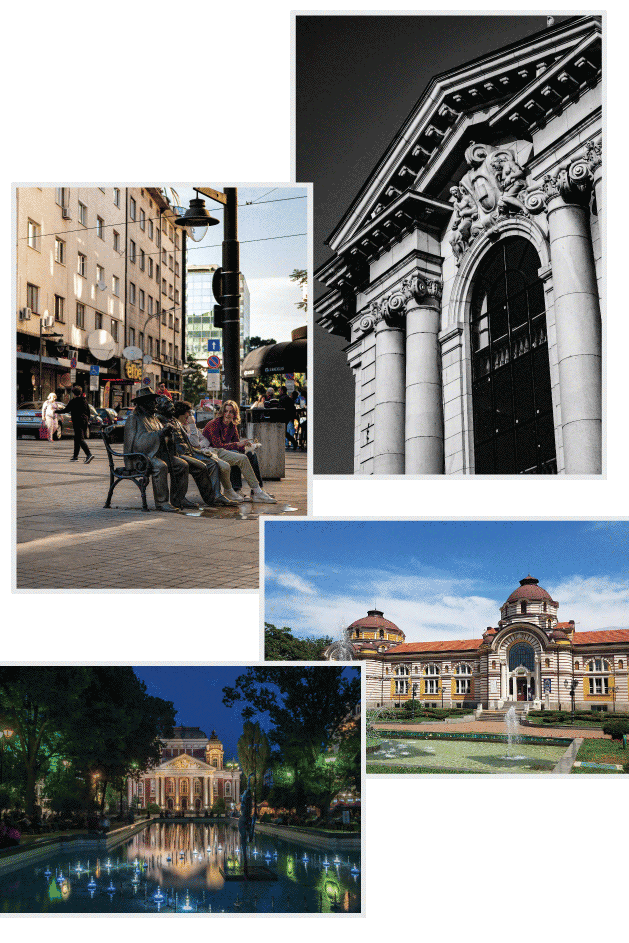
Kuklys Prize
The Kuklys prize is annually awarded at the HDCA conference for the best conference paper written by a graduate student. Normally the same person can only win the award once. The Kuklys Prize is aimed at promoting the work of graduate students in the field of human development and the capability approach. It is named in memory of Wiebke Kuklys, who, as an Economics PhD student at Cambridge University, advanced the capability approach by exploring the application of new statistical techniques. Wiebke studied in Germany, Chile, and England, and combined an open mind for new ideas with a concern for the most vulnerable people and she believed that high-quality research could contribute to making the world a better place to live in. Wiebke died in June 2005, at the age of 33, only a few months after receiving her PhD degree. Her dissertation was published posthumously by Springer under the title “Amartya Sen’s Capability Approach: Theoretical Insights and Empirical Applications.”

